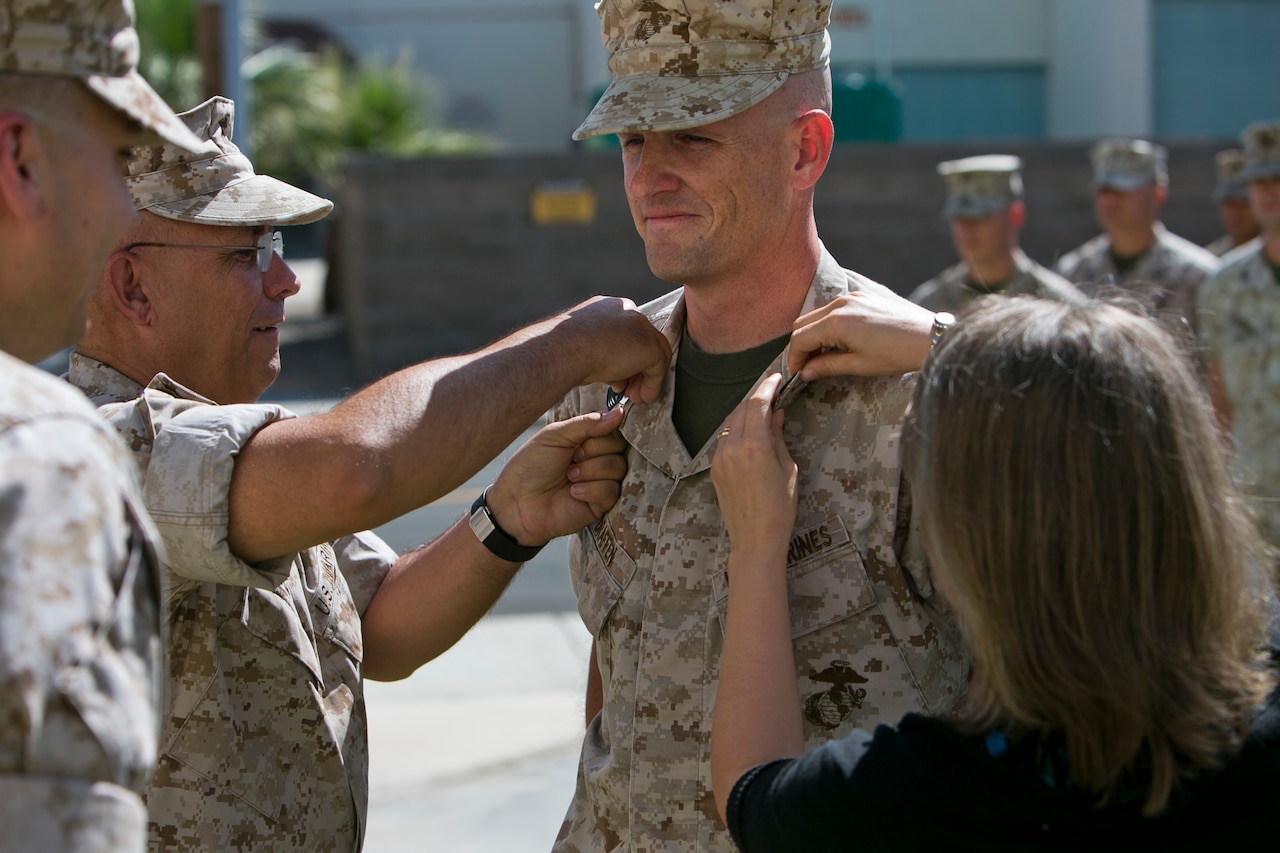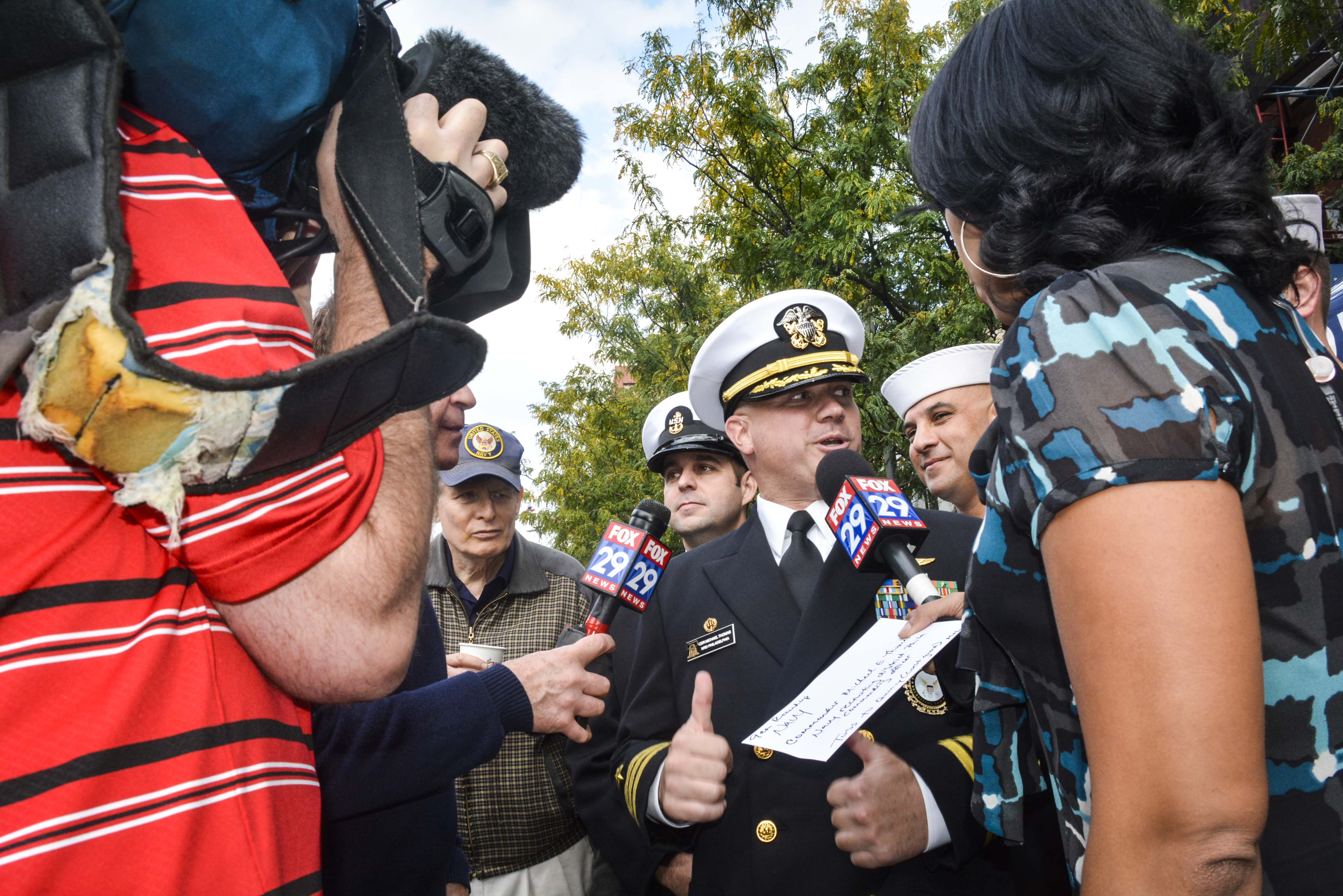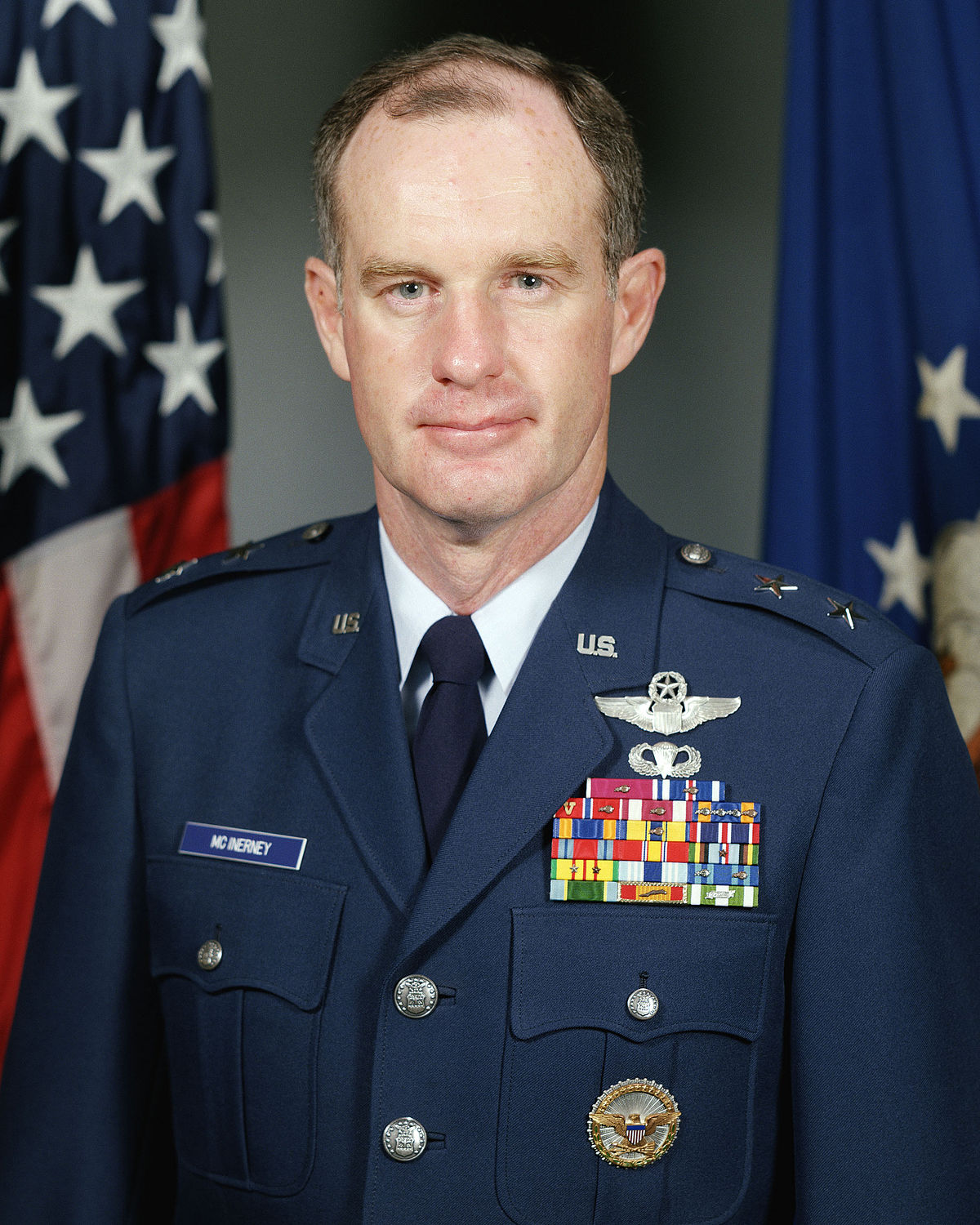Michael Thomas Military - The history of war, I realized, was much more than the operational history of the armed forces. It is the study of the whole society. Only by studying their culture can one understand what they stand for and why they struggle this way.
In addition, the fact that they wage war in this way has the opposite effect on their social structure. I had to learn not only to think differently about war, but also to think differently about history itself.
Michael Thomas Military
 Source: media.defense.gov
Source: media.defense.gov
I certainly won't claim to have coined the term "War and Society," but I think I did something to popularize it.2 There are other important indications that historians have followed the path Howard has outlined in this lecture.
Table Of Contents
In the influential White Paper of the Society for Military History, Tami Davis Biddle and Robert M. Citino explain how social and political nuances of military history have become the modern cornerstone of the field, apparently forming the arc of Howard's century historiography.40 Howard himself has published several contributions
under the banner of "war studies" for a somewhat different form of this type of military history.41 Howard's individual influence now rivals and likely will surpass that of the titans he credits in his essays. , passed.42 75 Carl von Clausewitz, On War, ed.
and trans. Michael Howard and Peter Paret (Princeton, NJ: Princeton University Press, 1976); Michael Howard, The Continental Commitment: Britain's Defense Dilemma During Two World Wars (London: Maurice Temple Smith, 1972); Michael Howard, Grand Strategy, vol. 4 August 1942-September 1943 (London: Her Majesty's Stationery Office, 1972);
Michael Howard, "Strategy and Policy in Twentieth-Century Warfare," in Howard, Studies in War and Peace (New York: Viking, 1971). "[Historians] must read war not only... in the context of political history, but also in the context of economic, social, and cultural history," Howard said in 1975. Thirty years later, when he published his memoirs Captain The Professor, he repeated
Research By War Or Conflict
his philosophy of military history: "The history of war, I understand, is more than the operational history of armed forces. It is the study of entire peoples. Only by studying their culture can one understand what they fought about and why they fought this way."90
2014 saw a breakaway season after the red roses in 2013. ..Put big numbers at Woodland (California) Taft High School, caught 86 passes for 1,656 yards and 21 touchdowns... Made Under Armor All-American in the 2011 game...
 Source: saintswire.usatoday.com
Source: saintswire.usatoday.com
After graduating from high school, spent one season at Fork Union Military Academy in Virginia, where he was teammates with Buckeye Midfielder Cardale Jones and caught 23 passes and for 497 yards... The nephew of former NFL star Keyshawn Johnson., was his top goal.
I was once with a doctoral student who, to end NATO's intervention in Afghanistan, during the winter supported the bombing of tribal villages known to the Mujahideen. The students' argument was that it would kill enemy supporters, and those out during the day—presumably gathering wood—would die from exposure.
The candidate added that "unfortunately" the "Obama entourage" in Washington refused to consider this action. After reading much of the same about Wehrmacht tactics in occupied Russia in World War II, I was horrified, and I asked Howard for moral guidance.
The answer: get the candidate to write a page about why Obama's "entourage" refuses to consider this measure. This will force him to take a more conservative approach to the subject. 60 Max Brooks et al., eds., Winning Westeros: How Game of Thrones Explains Modern Military Conflict (New York: Potomac Books, 2019);
and Max Brooks et al., Strategy Strikes Back: How Star Wars Defines Modern Military Combat (New York: Potomac Books, 2018). 74 I say "from afar" because I did not meet Howard until he gave the keynote address for a symposium sponsored by the Department of History at the United States Military Academy in 1982. Howard was then the Regius Professor of History at Oxford.
I remember the exact moment I was introduced to Michael Howard's work. It was October 1961, and the occasion was a meeting with Don Oxford, who supervised my studies of modern history. When I mentioned my special interest in military history, he said that I might find a book written by Michael Howard, one of his former students, interesting.
That book is The Franco-Prussian War, which has just been published.73 51 Howard himself made a similar disturbing observation in an influential article in 1979, in which he considered the preeminent social strategy of our adversary.
See, Howard, "Forgotten Scenes." The literature on hybrid warfare and hybrid threats is extensive. For a helpful introduction, see Bastian Giegerich, "Hybrid Warfare and the Changing Character of Conflict," Communications: The Fourth Journal 15, no. 2 (Spring 2016): 65–72, https://www.jstor.org/stable/26326440.
 Source: i0.wp.com
Source: i0.wp.com
Not surprisingly for someone who collaborated with Peter Paret in translating and editing Carl von Clausewitz On War, much of Howard's work explores the relationship between politics and war, particularly political coordination and strategy. Books such as The Continental Commitment and Grand Strategy, a volume on the official history of British strategy in World War II, and articles such as "Strategy and Politics in Twentieth Century War" confirm his understanding of this part of military history.
75 42 Evidence for this simple claim can be found with a simple Google Ngram search, which shows “Michael Howard” actually swapping places with “Quincy Wright” from the 1970s to 1990s. "Michael Howard" appears almost as frequently in Google's digital books today.
"Quincy Wright" came out at its peak, the mid-1950s. See: https://tinyurl.com/taphkw9. Citino and Tami Davis Biddle recently observed that developments in the field have gone beyond the term "new military history". It's nothing new anymore. Military historians for some time consider this field "not only the study of military institutions during war, but also the study of the relationship between military institutions and the society that creates them; the origins of war, warring societies, and the many effects war has on individuals, groups, states
, and territory."92 The fact that military history is now defined in such broad terms gives additional meaning to Howard's title by the Daily Telegraph: "the elder military historian."93 80 Michael Howard, "Using and the Abuse of Military History," RUSI Journal
138, No.1 (1993): 26–30, https://doi.org/10.1080/03071849308445676; Michael Howard, "Military History and the History of War," as an introduction: the importance of history to the military profession, eds. Williamson Murray and Richard Hart Sinnreich (New York: Cambridge University Press, 2006).
See also, Michael Howard, History Lessons (Oxford: Clarendon Press, 1981) In Iraq, Marine Sergeant Peter Woodall was killed in action in Anbar province on 27 April. Woodall, 25, from Sarasota, assigned to the 8th Engineer Support Battalion, 2nd Marine Logistics Group, II Marine Expeditionary Force, from Camp Lejeune, N.C.
63 “As an American, I hate that our national honor has been tarnished by lowly enemies... Those who claim to know how to win the war of the future are usually wrong. This book is different." Sean Mcfate, The New Laws of War: How America Can Succeed - Against Russia, China, and Other Threats (New York: William Morrow, 2019). Acknowledgments by Gen. The war in Ukraine is a wake-up call to nations
Europe, reminding them of the fact that defense is important. But are some of the recent promising steps in the right direction really a revival of the European Union's move for strategic autonomy and... Over the past four decades, the US Army has
 Source: media.defense.gov
Source: media.defense.gov
made repeated attempts to create a consistent doctrinal framework for the role of information in conflict states, however, these attempts were generally unsuccessful.What is the story of this struggle?More broadly,…54 For example, the lack of political overtones in the two new operational concepts being developed with
Department of Defense: The Joint Confidential Access and Maneuver Concepts in a Global Connection (JAM-GC) and Multi-domain Operations (MDO) ) reinforce weigh. On the other hand, though, we find many examples of persistent bad habits that Howard says Wright and Earle got rid of a century ago.
For example, Huntington's vision of an apolitical officer corps persists. Notably, while US military leaders take a traditional civilian position, they deny any political role. 53 And while political vulnerability dominates the defense debate, conventional weapons systems and staid political doctrinal solutions dominate. 54 Howard's audience will be watching closely for what he has to
do say: This is an opportunity to hear a respected British historian speak of the modern soldier, someone without a dog in the war in Vietnam but still on the edge. circumcision For their part, this is an audience of aspiring officers who began their careers in an extraordinary period of American civil-military relations, facing conflicts that reflect the political complexities of 20th century warfare.
Connecting with the younger officers in the room must have struck Howard as a challenge worth pursuing. These were the people he most needed to heed his warnings about the limits of military power. The great fear that Howard clearly conveyed to these cadets and teachers was that the post-Napoleonic line of thought was leading to a war of attrition and destruction with no room for political resolution.
To win, according to post-Napoleonic strategists, one must actually destroy one's enemy. 36 However, Howard reminds us, this is not the path to peace. 37 But in addition to being an accredited war historian in Britain, his responsibilities are obviously people to be invited to conferences -
public and private - on all military matters, and whenever more academic (and historical) was needed, he brought it to Whitehall. perspectives on conservation issues. Here, Howard's strengths will continue to convey the bigger picture, and he does it admirably.
This bigger picture, and a reminder of similar questions that were on the table a decade ago, is one that government agencies clearly lack, and do not have the time or manpower to investigate with the patience and care of a scientist.
 Source: s.hdnux.com
Source: s.hdnux.com
According to the information released by the service, there are a total of 686 names for military positions and 6 for civilian positions in the Command List. In the former, there were 313 colonels, 159 promoted sergeants, 129 promoted colonels and 85 colonels.
45 Today we are confronted with decades of doctrinal debate and consensus about key concepts of strategy, policy, politics, operations, etc. When he writes about strategy and politics in this lesson, "strategy" seems to include broadly understood military decision-making (see, for example, page 4), while "politics" in general remains obscure.
By the time Howard published The Mediterranean Strategy in the Second World War in 1968, accounts of differences between British and American strategists in opposing "pathways of war" were common among Second World War historians. According to Maurice Matloff, author of Strategic Planning for Allied Warfare, the official history of US Army strategy in World War II, the Anglo-American debate on war strategy with Germany presented a conflict between "the principles of opportunism and the long term."
82 The more I think about this section of The Art of War [namely, what we now call Strategy], the more I believe that its theory can be divided into several principles. abstract or nothing [Sätze];
but not, as is commonly held, because the problems are too difficult, but because one would explain things too obvious [Trivialitaten]. When I introduced the study of military history as a cadet at West Point in the late 1950s, the textbook was The Great Captains
Before Napoleon, a study of the exploits of Alexander, Caesar, Gustavus Adolphus, and Frederick the Great. At that time, the study of great captains by analyzing wars and their k decisive campaigns had been ranked as the most popular approach in military history.
Sir Michael Howard was, in his own way, a great captain in military history. My joy at receiving the great honor that you have invited to be the first foreign scholar to offer the Harmon Memorial Lectureship in Military History simply because the uncertainty I've always felt about what "military history" is, wanes.
if it does exist as an independent category of historical studies, and if it does, I am a military scholar. It is often said that Howard gained his fame primarily because of his book on the Franco-Prussian War. 15 But his real awakening came when, with Peter Paret, he edited a new translation of Clausewitz On War, as in the Vietnam fiasco, the idea that America had betrayed Napoleon's "way of war"
 Source: upload.wikimedia.org
Source: upload.wikimedia.org
-Clausewitzian in Vietnam and must return to the true "American Way of War", mastering the American military. Clausewitz became a taste of the times, and Howard and Paret, along with their late colleague Angus Malcolm of the British Foreign Office, turned old German into dirty modern English prose.
Clausewitz, of course, offers much more than commentary on mass conflict or how to organize mass resistance ("people's war") against an occupying regime (an aspect of On War that influenced Mao Tse-tung). In 1967, Howard asked his audience to question the policies that hindered military strategy.
In 1976, Howard and Paret, translating Clausewitz, put this particular language at the heart of the study of war and said that "war is the continuation of politics in other ways." An understanding of the political and social impact of war on society is propagated through the study of history.
So, at first glance, it appears that we are indeed starting to move in the direction of academic history which takes the role of international conflict more seriously. On the one hand, we have come a long way from the ugly days of military history and military practice, when historians and officers were confined within institutional walls with little contact with wider social and political realities.
Military historians and experts working today know that conflict between states is political in nature and that it is intertwined with all other aspects of social and political life in the Gordian knot. Howard's article revolves around two overlapping themes.
The first problem seems obvious at first, but in fact its depth should give any theorist or historian pause. Military history conducted as the study of tactics and operations in isolation or in isolation from other factors may be interesting, but not as beneficial as the study of the causes and effects of war.
Only when war is evaluated side by side and in the diplomatic, social, political, intellectual and economic context that surrounded it, does military history have meaningful explanatory power. Howard's insistence that this was the right way to study military history set the gold standard for the discipline today.
61 Edward Creasy, Fifteen Battles Decided the World: From Marathon to Waterloo (London: Bentley, 1851); Nugent Robinson, A History of the World in All Its Great Feelings, 2 vols. (New York: Collier, 1887). J.F.C. Fuller, A Military History of the Western World, 3 vols.
(New York: Funk & Wagnalls, 1954-1956); and Fletcher Pratt, The War That Changed History (Garden City, NY: Hanover House, 1956). On "war stories for boys", see, for example, D. M. Kelsey, ed., Deeds of Daring by American Soldier, North and South, rev.
edition (New York: Saalfield, 1903). 50 years ago no one in the US or UK would have seriously asked. Everyone knows what military history is. It is the history of armed forces and military operations. The subject occupies an isolated area, and at least has a political and social context.
The military historian, like his soldiers, operates in a closed hierarchical society, with order, immutable standards, deep or narrow loyalties, repetitive skills, and rich documentation. He fights human experience and misery at the behest of those in power and to serve ends it is not his business to analyze or question.
michael thomas news, michael thomas stats, michael thomas injury, michael thomas actor, michael thomas contract, latest news on michael thomas